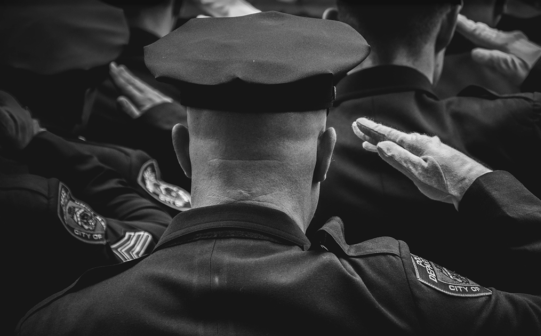Paul Harvey delivers an important message about the men and women in blue…
A policeman or policewoman does not have an easy job. They could be attacked at any moment by a suspect or by someone who does not want to be arrested. They must have fast reflexes because someone they are going after could be armed.Unfortunately, police are often unwanted in the places they have to go to. People see them as a threat, so they refuse to talk or engage. Cases of police brutality, too, make many mistrust the police. They do not want to be approached by someone they think may hurt them.Paul Harvey understood all this. Although he wrote ‘Policemen’ in 1970, the issues and problems it discusses are still ongoing and, in many places, worse. The piece has lasting power and it is worth looking at some of the stanzas to get at what Harvey’s message is.
“A policeman is a composite of what all men are, a mingling of a saint and sinner, dust and deity.”
Harvey is saying that he does not blindly admire policemen as a whole and that he still practices critical thinking. Policemen are not perfectly moral creatures; none of us are. They can make mistakes too. But, Harvey says, police have the spark of their divine make in them and can aspire to high ethical standards as we all can.
“Buried under the froth is the fact: and the fact is, less than one-half of one percent of policemen misfit the uniform.”
The froth Harvey talks about is all the controversy and media attention arising from any instance of police brutality. That, and the general feeling, mostly among young people, that police are there to help and not to cause more trouble. Also, the “misfit the uniform” line can mean for police to engage in immoral or forbidden behavior. It is not clear where Harvey got his “one half of one percent” statistic, but it certainly rings true. Bad cops are a rarity.
“A strangely nameless creature who is “sir” to his face and “pig” or worse to his back.”
People who criticize the police when they are with friends may, later, show respect when speaking to a police officer. This is because they do not want to be arrested. Police are not naive, and surely they know people will say horrible things about them. The policeman still must stay professional and perform his duties.
“He runs files and writes reports until his eyes ache, to build a case against some felon who will get “dealed out” by a shameless shamus.”
Police do contend with an unreasonable amount of paperwork. Every fact of every case must be accurate and consistent, for internal record keeping but also for court purposes. Harvey is oversimplifying a bit, here, too. District attorneys and prosecutors are the ones who build cases, with evidence supplied by the police on the street. So it is a group effort. But Harvey only wanted to write about policemen for this piece, and so he did.This writing still has meaning and relevance today and may continue to do so for decades or longer into the future. But there is a “rest of the story,” as Harvey himself would have said. Harvey’s father was a police officer. When Harvey was just three years old, his father was shot and killed on the job. This heartbreaking news from Harvey’s childhood helps explain the love and admiration he had for keepers of the law and his disdain for anyone who would fail to show respect to them.


